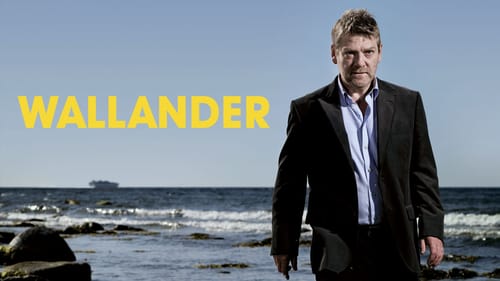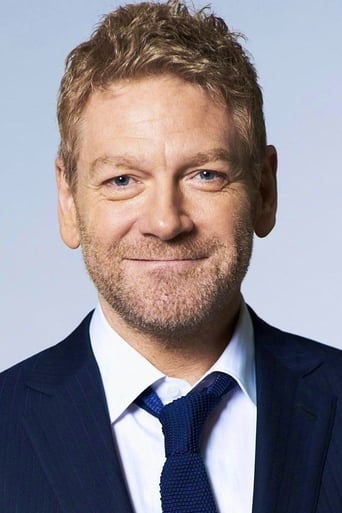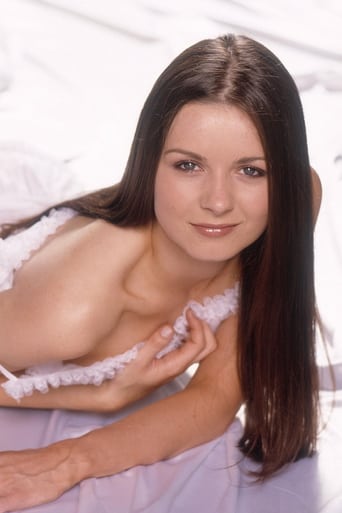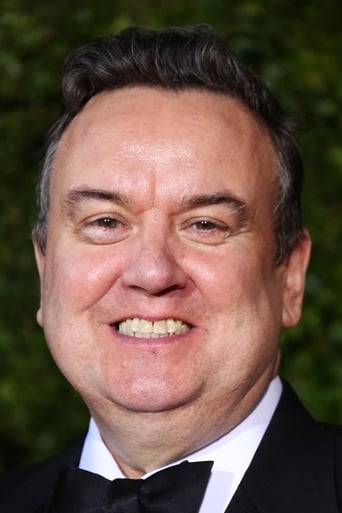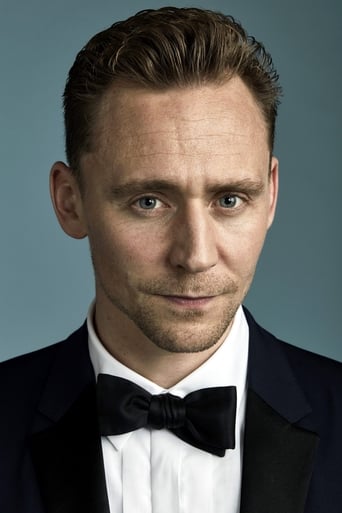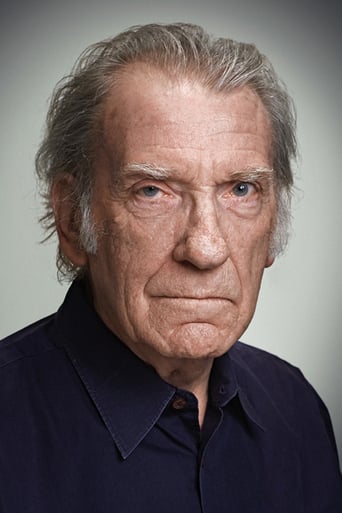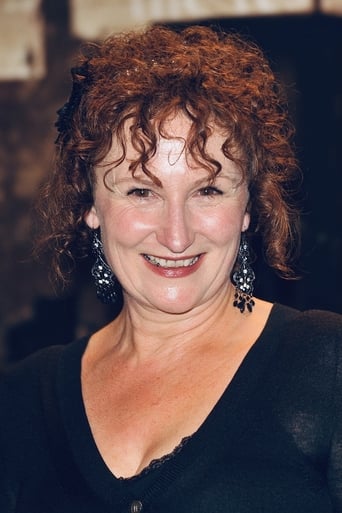VividSimon
Simply Perfect
Actuakers
One of my all time favorites.
Rio Hayward
All of these films share one commonality, that being a kind of emotional center that humanizes a cast of monsters.
Marva
It is an exhilarating, distressing, funny and profound film, with one of the more memorable film scores in years,
George Wright
It was a pleasure to watch this series with Kenneth Branagh in the starring role. I admired Branagh back in the early years of his career in Shakespearean roles such as Henry V and Hamlet. This role requires a man of few words but Branagh's Wallander is superb. He has sacrificed his personal life in pursuit of criminals and has paid the price in family relationships, with his father, wife and daughter. His own health has taken a hit as well. Wallander is a man totally dedicated to his work. At times, he knows how he has distanced himself from his loved ones and wants to make amends. Wallander's job consumes him and he is incapable of reversing a life spiralling out of control. Wallander, despite his flaws, is someone we want to like because he has a good heart that shows in his compassion for the victims of crime. The background is often grim, with shots of dark landscapes, stormy waters, and a cold, Northern climate. There comes a period of renewal for Wallander when he manages to get control of his life, and becomes a doting grandfather. This is not to say that he is any less dedicated to solving murders but he does find a better balance. Stick with the series for its dramatic and touching conclusion, although understated. It is very true to Wallander, the character I came to like very much.
patlightfoot
I an a fan of Kenneth, but I can not say I enjoyed his interpretation of Kurt. The big problem being the Swedish long running Wallander, was excellent. The same applies to Zen, and Inspector Donnetti. Indigenous languages are part of the spirit of the movie, if filmed say in Rome or Venice and the characters speak English or German instead of Italian it loses something. Same with the British Wallander. Kenneth rendition was to me over sentimental, especially he obviously had a nervous breakdown after shooting someone in self defense. One could identify with the Swedish Wallander, bit cranky and world weary, totally self absorbed but with some vulnerability. Kenneth showed too much vulnerability. I mean to say, he should not have been working in that emotional and weak frame of mind. We all go through bad low times, but if you have a gun, they have to watch your reactions to certain situations so you don't over or under react,especially to protect others.I mean Wallander acted in haste that caused the GSPs to attack him, with his partner forced to shoot them. And the owners reaction that nearly killed her. No I would give the Swedish Wallander 9 out of 10. Zen well English speaking cops in Rome, no wonder it only went for 3 episodes. I like Inspector Donetti, but speaking in German, oh no. But I still enjoyed watching as it caught the spirit of Venice and the Venetian cops.
Dr Jacques COULARDEAU
Twelve long episodes in this collection, twelve long vignette on modern time Sweden, and yet a complete and unique story in twelve episodes that construct a fresco of life and death in Scandinavia on the west coast of the Baltic Sea. And yet some unifying elements comes up in this saga, because it is a saga, the saga of the life and old age of Wallander, a cop all his life and an Alzheimer dreamer in his old age. His strong point in his active life was to have a wide vision that could take into account many elements and bring them to some melting point that produced, distilled the truth, well a path, a track to the truth of the case at hand. This subductive mind and thinking is rare and is typical of some kind of mental disorder but that is extremely important for society. Some call it the Aspergher syndrome, others point out some other incapability to be in close contact with people in real empathetic life because of their propensity to capture everything at once and being totally engulfed in that full vision that can be looked at as if it were some haunting hypnotic derangement. Paul Radin identified these people, this small minority of people in all "primeval society" as being the religious, mythical-minded people who can lead their tribes to some supernatural and spiritual consciousness. That's what Wallander is, apart from the fact that he does not live in a primeval tribe but in an advanced and developed western society. Now the character is marvelously depicted and his reactions to the various problems he encounters in his profession when dealing with particular crimes are evoked in at least four dimension. But the author is another story and I am not interested in his personality, what's more private essence. He just animates his character to reflect on our modern world in this special phase in which history has thrown us. We are led by clowns and the soil is becoming very muddy.He thus tackles some dark layers of Swedish social reality and the picture is not nice at all. He deals with social exclusion and social segregation in a society that is supposed to be super equalitarian and is not. It just paint misery in pink and that keeps the poor or socially deprived minorities, alcoholics and incestuous perverts and prostitutes and just plain criminal minds, in the back alleys where they belong with enough to live on and forget about the rest of the world, provided they are left alone. He then tackles the problem of refugees and migrant people. Sweden has accepted a lot more than other European countries and that has consequences on the crime rate related to these immigrants and refugees. But the author does not put everything in the same bag and shakes all different stories into one mashup dream or nightmare, the one Donald Trump invented about Sweden as if it were hell on earth, a way to hide the American reality: the highest level of imprisoned citizens, both in number and in proportion in the whole world with the death penalty hanging over the heads of those prisoners who get stiff long prison terms for simple possession of some drugs, etc., the war on drugs as the Americans call it. Sweden is a paradise when compared to the American crime scene, crime arena, crime circus, crime parade and carnival.But the author systematically shows how crimes connected with immigrants and refugees are in fact crimes whose victims are refugees and immigrants and the culprits are good old Nazi or neo- Nazi Swedes from good families indeed: a tradition in eugenics and segregation and rejection of minorities of any type since the very beginning of the 20th century (at least) since Sweden was the first country in Europe to pass eugenic laws to eliminate these rejected different people from society as if they were aliens compromising the good work and efforts of the good citizens.In the same way the author tries to unknit some easy trompe l'oeil pictures about motorcycles and motorcyclists, showing that they live on the side of society in a way creating some fear around them and giving force to the antipathy of plain simple people for those self- appointed marginals. And in each of these crime stories the culprit is never the one we expect and the motivation certainly not the one we had felt as true. But what's more he also dares deal with some older problems, like South Africa, that old Dutch colony turned sour and racist and that finally came out of the fog and is now deeply engrossed with corruption and crime to gain power or keep it. The author also dares deal with the Russian myth and the Baltic Republics and the Cold War and the last episode shows how this Cold War anti-Soviet paranoia was totally manipulated and generated by the American CIA to make Sweden move from what the USA considered a position too close to communism to get back into the ruts of western capitalism. That's what Donald Trump has declared in Congress on February 28, 2017: "We have defeated Communism." They sure have, probably because it had no future as long as it stayed in collectivist tracks. But sure enough they blocked the Soviet bloc into not evolving, not inventing new ways, the way the Chinese or Vietnamese communists have done. And we could think of the South African communists too. That makes this series a very sad fresco of the world in its evolution after the Second World War. [...]Dr. Jacques COULARDEAU
theedeannareilly
Kenneth Branagh is a masterful performer (Henry V) one of my favorite to this day- in such a low budget, he (and others)acted that movie to greatness. I never knew of this series till I was recently speaking of him to some others after seeing him. I was told he was on Wallander. I was sad to know I had missed supporting his career in this, but excited, because I loved Henning Mankell (read Before the Frost first - wow!). Kenneth Branagh and Mankell!!! I was on board, recently started at the beginning and His acting was Excellent!!! Thank you Kenneth,BBC, and Henning!!! Great Acting truly is an art to be appreciated!!! He has always inspired me and would love to see him in more top roles. I love his producing and directing also.


